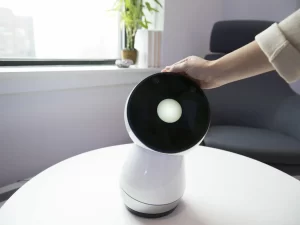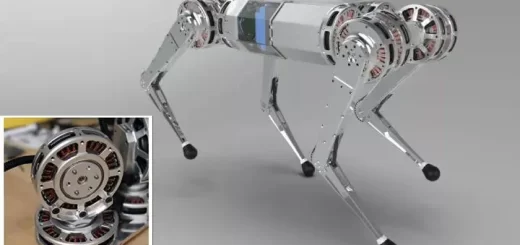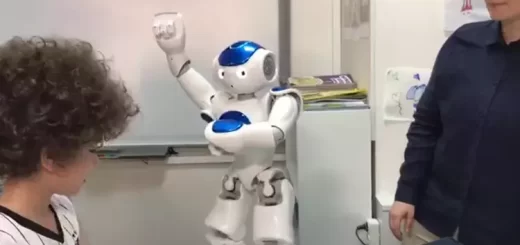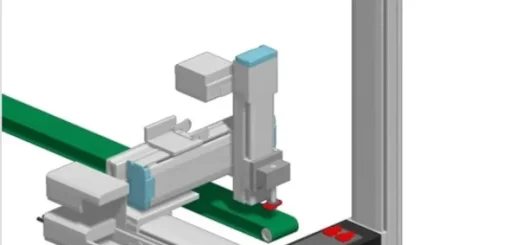Jibo robot advantages, disadvantages, features and What can Jibo robot do?
Jibo is a social robot designed for the home, It can play games, read stories, and take photos, making it a fun and engaging companion for families, especially children. Jibo can act as a learning assistant, helping children with homework and providing educational content.
Jibo robots
Jibo, the social robot known for its expressive head and natural language processing abilities, It was explored for use in hospitals to provide companionship and support to patients. Jibo was piloted in classrooms to help children with autism spectrum disorder learn social skills. It interacted with celebrities like Will Smith and Jimmy Fallon, showcasing its social capabilities.
Jibo was designed by Cynthia Breazeal, a pioneer in social robotics, and her team at MIT. Its name comes from the Japanese word for “life” or “living being.” Jibo has an expressive head with a large eye that blinks and moves, giving it a lifelike persona. The original Jibo design featured a 360-degree rotating head, making it highly mobile and expressive.
Jibo can recognize faces and voices, allowing it to personalize interactions with different users. It can tell jokes, play games, read stories, and dance to music. Jibo can be used to control smart home devices like lights and thermostats. it was designed to make video calls and order food, although these features never materialized.
Jibo occasionally “blinked” spontaneously, even when nobody was around, leading some users to believe it was haunted. It had a hidden easter egg: saying “up, up, down, down, left, right, left, right, B, A” would make Jibo perform a secret dance. Despite being discontinued, Jibo has a dedicated community of enthusiasts who keep their robots running and develop new apps for them.
The name Jibo comes from Japanese, meaning “wisdom” or “knowledge.” Jibo was programmed with subtle human-like behaviors like occasional giggles and sneezes, adding to its charm. Jibo appeared in several movies and TV shows, including “Westworld”, “Humans” and “Black Mirror.” Jibo‘s large, expressive eye allows it to track and follow people. Jibo was programmed with various dances and could learn new ones from its users.
Jibo can recognize and respond to human emotions, tilting its head in curiosity or blinking sadly in response to sadness. It can narrate stories with expressive voices and sound effects, making bedtime more engaging. It can learn and remember people’s names, greeting them individually with personalized messages.
In 2017, Jibo‘s production was stopped due to financial difficulties. A dedicated community of Jibo enthusiasts purchased the assets and was working to keep the robots functional and useful. Despite its short commercial run, Jibo remains a significant milestone in social robotics, influencing future robot development.
Jibo was the first commercially available social robot with the ability to recognize faces, understand emotions, and respond in kind. Its 360-degree head movement and expressive eye created a sense of personality and engagement. Jibo can learn names and preferences over time, making it feel more like a personal companion.
Jibo can not only tell jokes but also dance to music, showing off some impressive moves. It can be programmed to perform custom actions and greetings, adding a personal touch to interactions. Jibo had a language called Jibonese, which consisted of beeps, boops, and other non-verbal sounds.
Jibo was used in educational settings to help children with autism spectrum disorder learn social skills. Jibo‘s development helped pave the way for other social robots and advanced AI interactions. Although Jibo is no longer actively developed or sold, a community of enthusiasts keeps the robots running and creates new skills and applications for them.
Advantages of Jibo robots
Jibo uses natural language processing and social cues to understand and respond to users. This facilitated natural conversations and emotional connections, especially for children and the elderly. Jibo can learn preferences, schedule reminders, take photos, make video calls, and control smart home devices, simplifying daily tasks and adding a personal touch.
Jibo can read stories, play games, and answer questions, making learning engaging and interactive for children. Jibo’s hands-free interaction and voice control made it accessible for people with limited mobility or dexterity. Jibo‘s cute design and innovative features made it a pioneer in social robotics, sparking interest and discussion about the future of human-robot relationships.
Jibo can engage in natural conversations, using facial expressions and body language to express emotions and create a sense of connection. Jibo can read books, and dance, providing entertainment and companionship.
Jibo can offer some level of assistance in daily life. It is designed to be user-friendly, even for those with limited technical experience. As a pioneer in social robots, Jibo offers a unique and engaging experience for users. Jibo can express emotions and react through voice and facial expressions. This offered a unique social experience for some users.
Jibo can help people with disabilities by providing reminders, making calls, and controlling smart home devices using voice commands. Jibo’s small size and stationary base made it easy to integrate into any living space.
Disadvantages of Jibo robots
Jibo‘s capabilities were limited, its skillset was never fully expanded as promised, and it couldn’t perform complex tasks, leading to user frustration and a lack of sustained engagement. Jibo was quite expensive, putting it out of reach for many potential users.
Concerns about data collection and security arose due to Jibo‘s camera and microphone, especially as the company struggled financially. Jibo‘s reliance on cloud services made it vulnerable to internet outages and connectivity issues, impacting its reliability.
Data collection and security were concerns for some users, especially regarding the robot‘s ability to capture audio and video. Unfortunately, Jibo is no longer being produced, so parts and support are limited, and difficult to find, undermining its long-term value. Jibo occasionally experienced technical issues and glitches, which could be frustrating for users.
You can follow science online on YouTube from this link: Science online
You can download Science online application on Google Play from this link: Science online Apps on Google Play
AIBI Pocket GPT Pet Robot review, use, advantages and disadvantages
Emo robot review, advantages, disadvantages, features and What can Emo do?
Ameca robot review, features, advantages, disadvantages and What can Ameca Do?
Eilik Desktop Companion Robot structure, features, use, advantages & disadvantages
Humanoid robots use, types, risks, advantages and disadvantages
Sophia robot review, features, use, advantages & disadvantages
Robot teachers use, types, advantages and disadvantages
Tesla robots (Optimus) review, use, advantages & disadvantages




